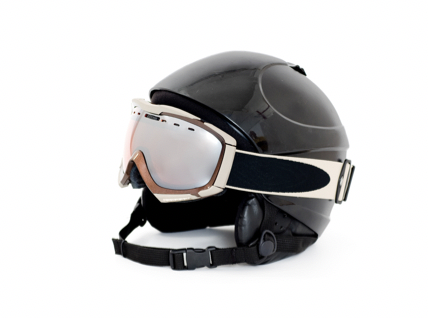Winter activities, whether outdoors on the slopes or indoors by the fire, are fun ways to enjoy the season. Unfortunately, families frequently overlook some winter hazards that send thousands to the emergency room each year. Here are some safety tips for the winter season:
Space Heaters – Give Them Space
- Keep flammable materials, including curtains and bedding, at least 3 feet away from space heaters.
- Place the heater on a stable, level surface. Make sure it will not be knocked over.
- Never power the heater with an extension cord or power strip. Do not leave the heater on while you are not there or while you are sleeping.
- Have working smoke alarms on every floor and in every bedroom. The early warning provided by smoke alarms can save your life.
- WATCH: Chairman’s video on Space Heaters:
Snow Blower Hazards – Clear Snow Safely
- Most snow blower injuries happen when consumers try to clear snow from the discharge chute.
- First, stop the engine. Use a long stick, NOT your hands, to unclog wet snow and debris from the machine.
- NEVER leave the machine running in an enclosed area. The exhaust contains poisonous carbon monoxide (CO) which can kill in minutes.
- Finally, don’t add gasoline to a running or hot engine and always keep the gasoline can capped correctly.
- WATCH: Chairman’s video on Snow Blower Safety:
Carbon Monoxide – The Invisible Killer
- Use portable generators outside your home and place them at least 20 feet away. Never use a generator inside a home, basement, shed or garage. The exhaust from portable generators contains poisonous CO which can kill in minutes.
- Have your heating system inspected and serviced by a qualified technician every year, including furnaces and chimneys.
- Never leave a car running in a garage even with the garage door open.
- Most generator-related deaths from CO poisoning occur during the cold months. Have working CO alarms on every level of your home and outside sleeping areas.
- WATCH: Chairman’s video on Carbon Monoxide
Winter Sports Safety – Helmets Make a Difference
- Helmets aren’t just for kids — they’re for adults, too.
- Wearing a properly fitted helmet can reduce the risk of a head injury.
- Choose a certified helmet that is designed for the particular activity you’re involved in, e.g., bicycling, snowboarding, or snowmobiling.
- See our helmet safety publication Which Helmet for Which Activity for more information.

About the U.S. CPSC
The U.S. Consumer Product Safety Commission (CPSC) is charged with protecting the public from unreasonable risk of injury associated with the use of thousands of types of consumer products. Deaths, injuries, and property damage from consumer product-related incidents cost the nation more than $1 trillion annually. Since the CPSC was established more than 50 years ago, it has worked to ensure the safety of consumer products, which has contributed to a decline in injuries associated with these products.
Federal law prohibits any person from selling products subject to a Commission ordered recall or a voluntary recall undertaken in consultation with the CPSC.
For lifesaving information:
- Visit CPSC.gov.
- Sign up to receive our email alerts.
- Follow us on Facebook, Instagram, X, BlueSky, Threads, LinkedIn and Truth Social.
- Report a dangerous product or a product-related injury on www.SaferProducts.gov.
- Call CPSC’s Hotline at 800-638-2772 (TTY 800-638-8270).
- Contact a media specialist.
Please use the below phone number for all media requests.
Phone: (301) 504-7908
Spanish: (301) 504-7800

